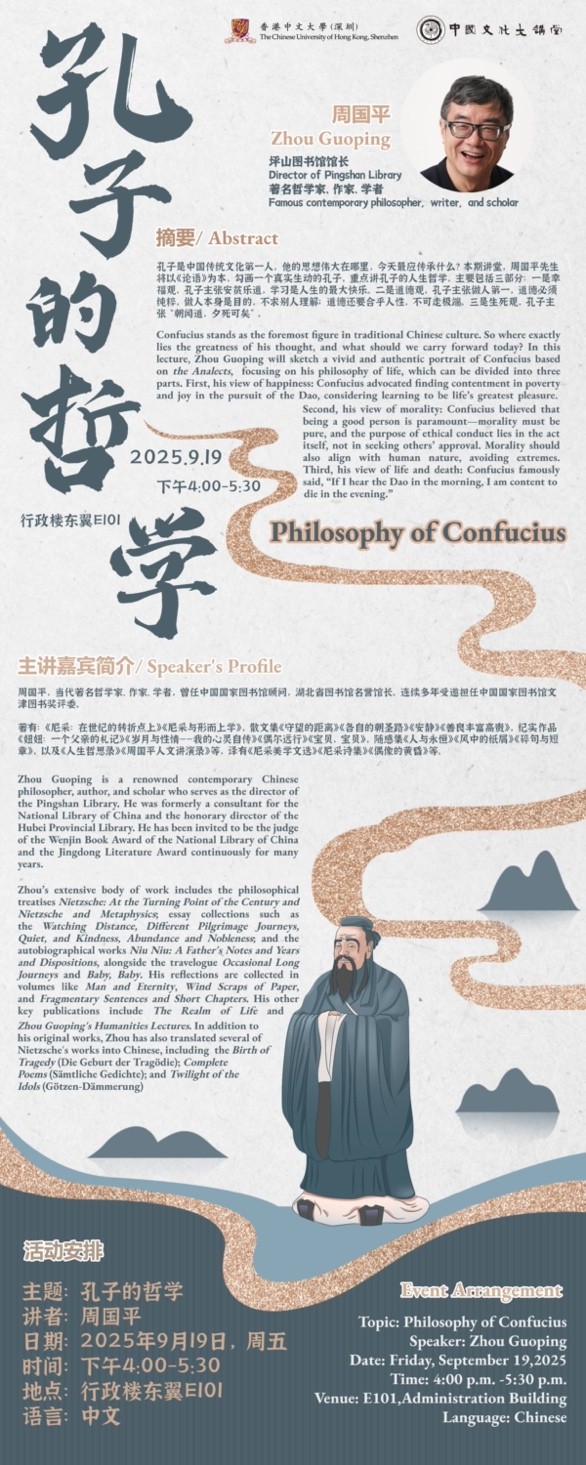【Chinese Culture Colloquium】Philosophy of Confucius
Topic: Philosophy of Confucius
Speaker: Zhou Guoping
Date: Friday, September 19, 2025
Time: 4:00 p.m. -5:30 p.m.
Venue: E101, Administration Building
Language: Chinese
Abstract:
Confucius stands as the foremost figure in traditional Chinese culture. So where exactly lies the greatness of his thought, and what should we carry forward today? In this lecture, Zhou Guoping will sketch a vivid and authentic portrait of Confucius based on the Analects, focusing on his philosophy of life, which can be divided into three parts. First, his view of happiness: Confucius advocated finding contentment in poverty and joy in the pursuit of the Dao, considering learning to be life’s greatest pleasure. Second, his view of morality: Confucius believed that being a good person is paramount—morality must be pure, and the purpose of ethical conduct lies in the act itself, not in seeking others’ approval. Morality should also align with human nature, avoiding extremes. Third, his view of life and death: Confucius famously said, “If I hear the Dao in the morning, I am content to die in the evening.”
Speaker:
Zhou Guoping is a renowned contemporary Chinese philosopher, author, and scholar who serves as the director of the Pingshan Library. He was formerly a consultant for the National Library of China and the honorary director of the Hubei Provincial Library. He has been invited to be the judge of the Wenjin Book Award of the National Library of China and the Jingdong Literature Award continuously for many years.
Zhou’s extensive body of work includes the philosophical treatises Nietzsche: At the Turning Point of the Century and Nietzsche and Metaphysics; essay collections such as the Watching Distance, Different Pilgrimage Journeys, Quiet, and Kindness, Abundance and Nobleness; and the autobiographical works Niu Niu: A Father's Notes and Years and Dispositions, alongside the travelogue Occasional Long Journeys and Heartfelt Baby, Baby. His reflections are collected in volumes like Man and Eternity, Wind Scraps of Paper, and Fragmentary Sentences and Short Chapters. His other key publications include The Realm of Life and Zhou Guoping's Humanities Lectures. In addition to his original works, Zhou has also translated several of Nietzsche's works into Chinese, including the Birth of Tragedy (Die Geburt der Trag?die); Complete Poems (S?mtliche Gedichte); and Twilight of the Idols (G?tzen-D?mmerung).






